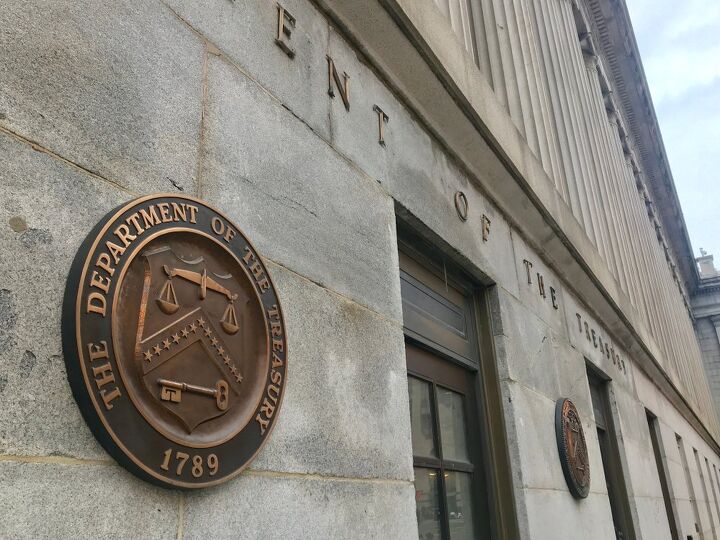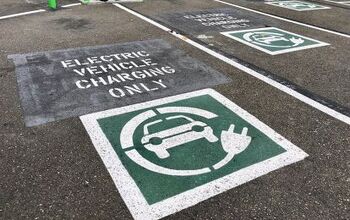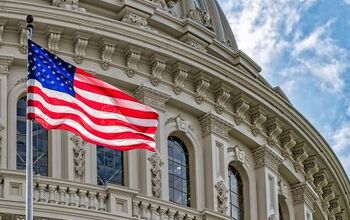U.S. Treasury Stalls EV Tax Credit Guidance

On Monday, the United States Treasury Department said it will issue proposed guidance for the updated EV tax credit scheme in March of 2023. However, the Inflation Reduction Act (H.R. 5376) directed the department to finalize its recommendations before 2022 was over by setting a December 31st deadline. While it sounds like bad news for automakers, the delay may actually work to their advantage by delaying new mineral and battery component requirements that may have made vehicles using foreign-sourced batteries ineligible.
Based upon earlier reports, there were two aspects of the revised EV tax credit plan (which was slipped into the so-called Inflation Reduction Act) that were rubbing automakers the wrong way. Item number one involved linking credits to unionized labor, which would have had sweeping political ramifications while favoring domestic manufacturers working with the UAW. Item number two involved material content requirements, because most batteries and their raw materials have to be imported from other parts of the world.
The whole thing is supposedly designed to incentivize domestic EV production. But how it’s being done has resulted in rolling criticism, as regulatory actions do run the risk of rustling in favoritism. Some feel like EV tax credits have run their course and are devolving into federal handouts now that production caps have been done away with. Though automakers don’t seem to mind them sticking around, as long as they benefit their businesses specifically. The government has attempted to strike a balance by adding income caps and vehicle price limitations.
Those items will still go into effect on January 1st, 2023. What will be missing is the critical mineral and battery component requirement that would determine how much of a vehicle’s battery would need to be assembled in North America to qualify for government subsidies. By delaying any decisions until March, automakers could theoretically still source batteries from other parts of the world without suffering any financial ramifications stemming from the updated EV tax credit scheme.
"Treasury will issue a notice of proposed rule-making (NPRM) in March with proposed guidance on the critical minerals and battery components requirements," the department stated on its website. "By statute, the critical mineral and battery component requirements take effect only after Treasury issues that proposed rule."
While the original legislation requires 50 percent of all battery components to be made or assembled in North America by 2024. By 2029, that number swells to an even 100 percent for any business hoping to see some tax money floated on a per-vehicle basis. But none of that can happen until the Treasury Department issues a comprehensive annual plan that irons out all the details.
"As much as automakers and policymakers would like this transition to happen faster, increasing access to critical raw materials, expanding manufacturing capacity and broadening our domestic supply chains will not happen overnight," the Alliance for Automotive Innovation, which represents just about every large automaker on the planet, said in the comments filed to the Treasury in November.
Despite some of the content requirements being delayed until at least the spring, the department has said it still plans to release information on the “anticipated direction of the critical mineral and battery component requirements that vehicles must meet to qualify for tax incentives in the Inflation Reduction Act” before the holidays are over and that companies “will be able to access tax benefits from many of the law’s climate provisions” starting on January 1st.
Interestingly, it seems that the Treasury didn’t have much trouble deciding how to handle most of the objectives and tax provisions outlined in H.R. 5376 – just the bit that would have forced automakers to produce batteries domestically or run the risk of having their vehicles become ineligible for tax subsidies.
[Image: DCStockPhotography/Shutterstock]
Become a TTAC insider. Get the latest news, features, TTAC takes, and everything else that gets to the truth about cars first by subscribing to our newsletter.

A staunch consumer advocate tracking industry trends and regulation. Before joining TTAC, Matt spent a decade working for marketing and research firms based in NYC. Clients included several of the world’s largest automakers, global tire brands, and aftermarket part suppliers. Dissatisfied with the corporate world and resentful of having to wear suits everyday, he pivoted to writing about cars. Since then, that man has become an ardent supporter of the right-to-repair movement, been interviewed on the auto industry by national radio broadcasts, driven more rental cars than anyone ever should, participated in amateur rallying events, and received the requisite minimum training as sanctioned by the SCCA. Handy with a wrench, Matt grew up surrounded by Detroit auto workers and managed to get a pizza delivery job before he was legally eligible. He later found himself driving box trucks through Manhattan, guaranteeing future sympathy for actual truckers. He continues to conduct research pertaining to the automotive sector as an independent contractor and has since moved back to his native Michigan, closer to where the cars are born. A contrarian, Matt claims to prefer understeer — stating that front and all-wheel drive vehicles cater best to his driving style.
More by Matt Posky
Latest Car Reviews
Read moreLatest Product Reviews
Read moreRecent Comments
- ChristianWimmer It might be overpriced for most, but probably not for the affluent city-dwellers who these are targeted at - we have tons of them in Munich where I live so I “get it”. I just think these look so terribly cheap and weird from a design POV.
- NotMyCircusNotMyMonkeys so many people here fellating musks fat sack, or hodling the baggies for TSLA. which are you?
- Kwik_Shift_Pro4X Canadians are able to win?
- Doc423 More over-priced, unreliable garbage from Mini Cooper/BMW.
- Tsarcasm Chevron Techron and Lubri-Moly Jectron are the only ones that have a lot of Polyether Amine (PEA) in them.


































Comments
Join the conversation
Those of Us here in the United States that are born in the United States and can not afford an EV need to start a class action lawsuit to receive our EV credits in A check!!! It is only Fair to all Americans to be treated Equally!!! Not just rewarding People who can afford an EV with Our Tax Dollars!!!
$7,500 for Every American citizen not only the Rich!!! Class Action Lawsuit!!! Let's Go Brandon!!!